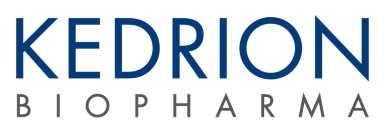
Plasma undergoing fractionation in Kedrion's laboratoryCredit: Kedrion
Kedrion purifies human blood plasma to harvest proteins that form the basis of therapeutics, with a focus on rare diseases. Examples include blood coagulation factors for treating haemophilia and antibodies for immunodeficiency disorders. Most recently, it has begun developing a plasma-derived antibody therapy for COVID-19 patients. Kedrion is the only Italian company working on plasma-derived therapies, and is now the world’s fifth largest producer of plasma products. Kedrion is proud of its strong connections with local communities, and hosts regular STEM events for schools and universities. Andrea Caricasole is Kedrion’s Head of Research and Innovation.
What are Kedrion’s key goals?
At the heart of Kedrion’s business is a community asset: blood plasma, usually donated by volunteers. For this reason, there is a strong ethical element to our business. We have a mandate to make appropriate and full medical use of this resource. Blood plasma is an incredible tool; there are more than 2,000 plasma proteins, yet so far only around 20 of these are used to make therapies. This resource must be treated in the same ethical way as organ/tissue donation, and we must maximize any opportunity to develop new therapies from it. The potential for developing new plasma-derived therapies is huge. We are building a strong internal R&D department, with a particular interest in treatments for rare diseases such as haemophilia and immunodeficiency disorders. We are assessing the therapeutic value of unexplored plasma proteins for medical use, and we’re aiming to complement our traditional plasma-derived products with technologies like recombinant proteins and gene therapy.
What are the current strengths of the biopharmaceutical industry in Italy?
There are many family run businesses in Italy, and they have set the foundation for biopharmaceutical and translational work here since the beginning of the last century. Often these companies are important sources of jobs and prosperity for local communities, and the communities are proud of their success. There are centres in Italy that compete on an international level, and these are pillars of science and innovation that are valued and respected. There is also a sound scientific and technical culture in our country. Typically, Italians that go and work abroad are very much appreciated as scientists, because they have a sound underlying STEM education. They are trained to be creative and to adapt; the scientists themselves are one of Italy’s greatest assets.
How does Kedrion help to promote STEM education in Italy?

Andrea Caricasole, Head of Research and Innovation at Kedrion
We have various initiatives right up to university level. Local schools visit Kedrion regularly and we provide guided tours and talks for students. We promote simple, clear messages about the scientific method and the fun of doing research. Good teachers can transform how children see science and turn it from an interest into a vocation. We need to foster the qualities of a good scientist in our young people: the importance of transparency, robustness, and above all, challenging opinions and hypotheses. This is critical to achieve high-quality research and applicable results. We offer a placement scheme for school and university students where they gain experience in lab work in an industrial context. We provide fellowships for postgraduate study, and we maintain strong links with all local universities, giving regular seminars and interacting with, and gaining from, their academic research. We also contribute directly to local government educational initiatives by supporting vocational courses in the life sciences.
What challenges currently face the industry?
The Italian biopharmaceutical industry is quite fragmented: networks and consortia are not yet as developed as in other countries. Also, shortages in R&D pipelines and cost-efficiency exercises have often weakened internal R&D, causing fragmentation and dispersal of human capital, know-how, experience and R&D efforts. A lack of innovative projects is, paradoxically, both a result and a cause of diminished investment in internal R&D. Balancing outsourcing, collaborations and internal R&D efforts is necessary if companies are to do more than just survive in the competitive biopharmaceutical world.
How has Kedrion helped address these challenges?
We have created an open innovation-style discussion platform to expand on our research, and we are interested in discussing ideas and projects with potential external partners. We need a mixed model for biopharmaceutical companies, where investments are made in both internal and external resources. External contracts can help at various stages of the development and manufacturing process, and companies should ensure they synergize with an external R&D network. But internal R&D investment is also critical – it helps us become more sustainable as an industry.
How has Kedrion responded to the COVID-19 pandemic?
The pandemic has forced everyone to rethink their lifestyles and priorities, and has highlighted weaknesses in our social, political and medical establishments. From the beginning of the outbreak, Kedrion has been committed to developing an effective therapy. Once infected, our bodies produce immunoglobulins (antibodies) to neutralize the virus. In collaboration with Kamada, an Israeli company with specialist purification technology, Kedrion is purifying anti-SARS-CoV-2 immunoglobulins from plasma donated by individuals recovering from COVID-19. These purified immunoglobulins seem to actively neutralize the viral infection. The project is in its early clinical development phase, with results expected in early 2021.


